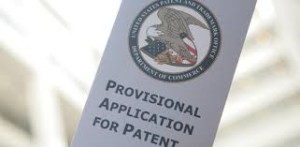
Erik Birkeneder is not your stereotypical lawyer. He’s more like Marshall from “How I Met your Mother.” He’s a really nice guy, loves helping people, and from the midwest. But he’s also a smart and savvy IP lawyer. He specializes in patents related to medicine and bioengineering and is talking to us today about what people can do to protect themselves from getting sued for patent infringement and some common mistakes he sees people make in this area. This interview will be especially relevant for first-time entrepreneurs.
BlackBoxPhD 3-Point Checklist: How to Avoid Patent Infringement Lawsuits
- Understand what constitutes patent infringement. Patent infringement occurs when you’re creating an idea or product that is similar to something that has already been done and has already been patented.
- The most common mistake people (especially software startups) make is thinking that it’s okay to put your head down and innovate without searching for patents. Don’t make this mistake. It can cost you a lot later on.
- Look at what your competition is doing and get an attorney for some basic help. It will save you a lot of time and money in the long run.
Erik, can you tell us about your background and work?
I am in intellectual property attorney; I went to undergrad and grad school for biomedical engineering where I focused on the crossover of physiology and engineering. Then, I went to law school to learn patent law and intellectual property law so I could apply my hard core scientific knowledge to the legal field. There I learned how to legally protect innovations and provide a competitive advantage to creative companies. I have been working at a law firm for about 8 years now litigating patents and trademarks and helping companies including start-ups gain protection for their intellectual property.
What are patents and what are some common ways people get sued or infringe on a patent?
This is a tough question. I always start out by saying there’s no way to be certain you won’t be sued over a patent. However, its a good idea to do some due-diligence to make sure you can get minimize the major risks of lawsuits, for example from competitors.
A patent is used to protect ideas. Anything you make, including any software, chemical compositions, mechanical devices, medical devices, or other devices or process could be infringing a patent. So once you make something or you have an idea for a business that center around a product, a common question I get is “how do I know if I’m going to get sued?”
Also, I’ve heard a lot of horror stories about software patents and how vague they are, or generally how patents are enigmatic thing that not a lot of people understand how to interpret. Therefore, it’s generally best to talk to an intellectual property attorney to help you understand how patents work and some basic tactics to minimize your risk of suit.
For example, you can always perform some basic patent searches. Google Patents is a great resource and you can google products and subject matter that you want to pursue using just basic search term logic and try to find any patents that are close to your subject matter. Once you locate patents you believe are relevant, it is quite important you talk to a patent attorney to understand what a patent covers and whether your idea might infringe.
But one main way to do this, especially for entrepreneurs who may not want to spend the money to search the universe for all patents, is to identify the low-hanging fruit–where are we most likely to get sued–and those will be your direct competitors. So there is an easy way to search for patents that your direct competitors have–it’s called an assignment search. This is important because your competitors will be the most likely to sue; you would most likely be on their radar when you launch a product.
 What are some common mistakes that you’ll see people making when they have ideas or when they’re creating something that leaves them exposed to infringe on a patent?
What are some common mistakes that you’ll see people making when they have ideas or when they’re creating something that leaves them exposed to infringe on a patent?
I think there’s a common theme–especially in the software industry these days–people come up to me and say “shouldn’t i just innovate like crazy and not think about patents?” There’s a general negativity around patents right now and so people have this idea that if they put their head down and innovate as fast as possible, they’ll be fine. In this process, they don’t ever protect their own patentability ideas and sometimes will chose products that directly infringe patents that could have easily been designed around.
What would be your advice? It seems like a first step would be search for patents and competitors, search for what your competitors are doing and as a second step, do people need to get a lawyer or can they then move forward and start building something and only get a lawyer at a later point if needed?
There’s always, of course, for entrepreneurs, the chance that the cost of having a lawyer at all will be prohibitive. And I certainly understand that. But generally, if you find a patent or even if you want to understand how thorough your search results might be it’s definitely best to talk to a lawyer about it. One important thing to remember is that patents are written like contracts; their exact words matter very much to whether you do or do not infringe the patent. Generally, these words can only be interpreted reliably by an IP lawyer.
Do you have an idea of what is the likelihood that someone will get sued…for example, if I’m coming up with a new product, in software, in consumer goods, whatever it is, what is the likelihood that any individual is going to get sued for infringing on patents?
It really varies in a couple of different ways. One is your industry. Say you’re a pharmaceutical company and you develop a new drug that’s a cancer therapy; likely you have a very good idea of what’s already out there and what patents are likely to be around and so I would say that the probability may be lower in that case. Although in that case, if you do happen to be infringing a patent of a competitor, the economic incentive for another company to sue you is so high you will almost certainly get sued.
If you’re talking about software now, the economic incentive to sue you is usually quite lower; however, the chance you’re infringing on someone’s patent is probably a lot higher. For instance, if you’re making an app that is going to be popular for a year or a couple years, the damages a competitor could get from suing you would be so it would not be worth it for them to sue you. So the first is a product of your industry.
Another factor is how innovative are you trying to be? Are you trying to be a me-too product, and essentially copying someone? Of course, in that scenario copying someone elses product or what is generally out in the market will vastly increase your chance of getting sued. If you do everything from scratch, and of course doing everything from scratch is more expensive, your probability would be a lot lower. So it really kind of varies, but maybe 3% of the time or less new companies get sued for patent infringement; but it is hard to quantify in the abstract.
So it really sounds like it depends on the industry. Some industries have a much higher rate of lawsuits due to patent infringements, while other industries have lower ones.
Definitely. And some industries have become known for being competitive with patents – such as the medical device industry.
 What types of industries do you see that people are infringing on the most?
What types of industries do you see that people are infringing on the most?
The biggest one is probability the software industry because software patents are written so vaguely. There’s actually a few software patents that have been granted with really broad claims, where the owner has sued thousands of people. Usually, from each defendant they ask for a small enough amount of money so it makes more sense to just pay the settlement than fight the case. These few patents have created an enormous amount of negative publicity for patents.
In the medical device industry you’ll fewer cases, but mostly between companies that are actively making products. You will also see quite high damages verdicts in the medical device industry. For example, there was a lawsuit recently against Philips, over pulse oximeter technology, where the verdict was in the hundreds of millions. So there really is a wide-range on it and each industry has it’s own culture with respect to patents.
And how much, ball-park range, does it cost to hire a lawyer beforehand to prepare and help you so that you’re not infringing on patents?
They can have a lawyer help you with the basic search for competitors’ patents for a few-thousand dollars. If you wanted to launch a pharmaceutical in an industry or field that you’re not familiar with, it would cost 50 to 100 thousand dollars to be more certain that there’s no potential patents you may be infringing.
Got it. So, let’s say in low budget ($5,000) to do some preliminary work to help you and then there’s about a five percent chance you’re saying to avoid infringement of trying to do a quick expected value, what’s the typical amount that people have to pay in lawsuits, if they don’t work with a lawyer, and what are the risks if you do infringe on a patent and you don’t prepare beforehand?
I think the biggest risk is that your product or service directly infringes a competitor’s patent, you may get sued even years after you launch which may potentially bankrupt your entire company. For instance, an average patent case costs 2 million to defendant through trial. However, if you spend some money up front, you are able to mitigate this risk. Usually you can design around any patents that are discovered, or change your business model in some way to avoid it. Also, if you are seeking investor money they are certainly going want to know you did your homework on patents before they invest.

Pingback: Under Armour Soccer Cleats
Pingback: curry shoes
Pingback: asics running shoes
Pingback: nike roshe
Pingback: lebron 13
Pingback: adidas nmd shoes
Pingback: stephen curry shoes
Pingback: yeezy boost 350
Pingback: curry 2.5 shoes
Pingback: Where To Purchase Puffco Plus
Pingback: Event Management Company in Hyderabad
Pingback: DMPK Services
Pingback: orospu cocuklari
Pingback: SCR888 Casino
Pingback: lose weight vegetarian recipes
Pingback: Event Management company in Hyderabad
Pingback: pendaftaran cpns 2018-2019 sultra
Pingback: In Vitro ADME Services
Pingback: paintless dent repair school
Pingback: redes informáticas
Pingback: Iq engineer X
Pingback: pendaftaran akademi pimpinan perusahaan 2018
Pingback: Digital Marketing Agency in India
Pingback: !2ke
Pingback: 검증사이트
Pingback: Tree of Innovation Digital Advisory
Pingback: exercise physio
Pingback: DMPK Studies Outsourcing
Pingback: Infrarot Heizfolie
Pingback: Depression sorg og stress
Pingback: diyala sciences
Pingback: Local Maps optimization
Pingback: Banja Luka
Pingback: daftar sbobet online
Pingback: Defibrillator Using
Pingback: top kiwi casino sites
Pingback: instakram kahpeleri
Pingback: UK Chat Rooms
Pingback: matrimonial website design
Pingback: singani pharma legit
Pingback: acheter des stéroides
Pingback: star stable game club
Pingback: https://webtraffictoolkit.com/15-minute-manifestation-review-2018-2019/ 15 Minute Manifestation
Pingback: Pralnia œwinoujœcie
Pingback: fuyjcsfc
Pingback: why would you be prescribed these drugs zithromax, sulfamethoxazole, mycophenolate
Pingback: amoxicillin 500 125 mg
Pingback: buy furosemide 20 mg online
Pingback: zithromax online europe
Pingback: stromectol medicine
Pingback: can you buy ventolin over the counter uk
Pingback: dosing synthroid
Pingback: propecia permanent impotence
Pingback: neurontin goodrx
Pingback: adrenal fatigue plaquenil
Pingback: buy amoxil 250mg usa
Pingback: buy lasix 40 mg
Pingback: neurontin discount
Pingback: plaquenil drug
Pingback: 4mg prednisone daily
Pingback: priligy price nz
Pingback: provigil buy usa
Pingback: stromectol tablets
Pingback: proventil albuterol
Pingback: zithromax tablet
Pingback: generic neurontin
Pingback: buying ventolin uk
Pingback: lumigan gotas
Pingback: buy aralen 100mg
Pingback: tizanidine 503
Pingback: cost of molnupiravir
Pingback: zanaflex gel